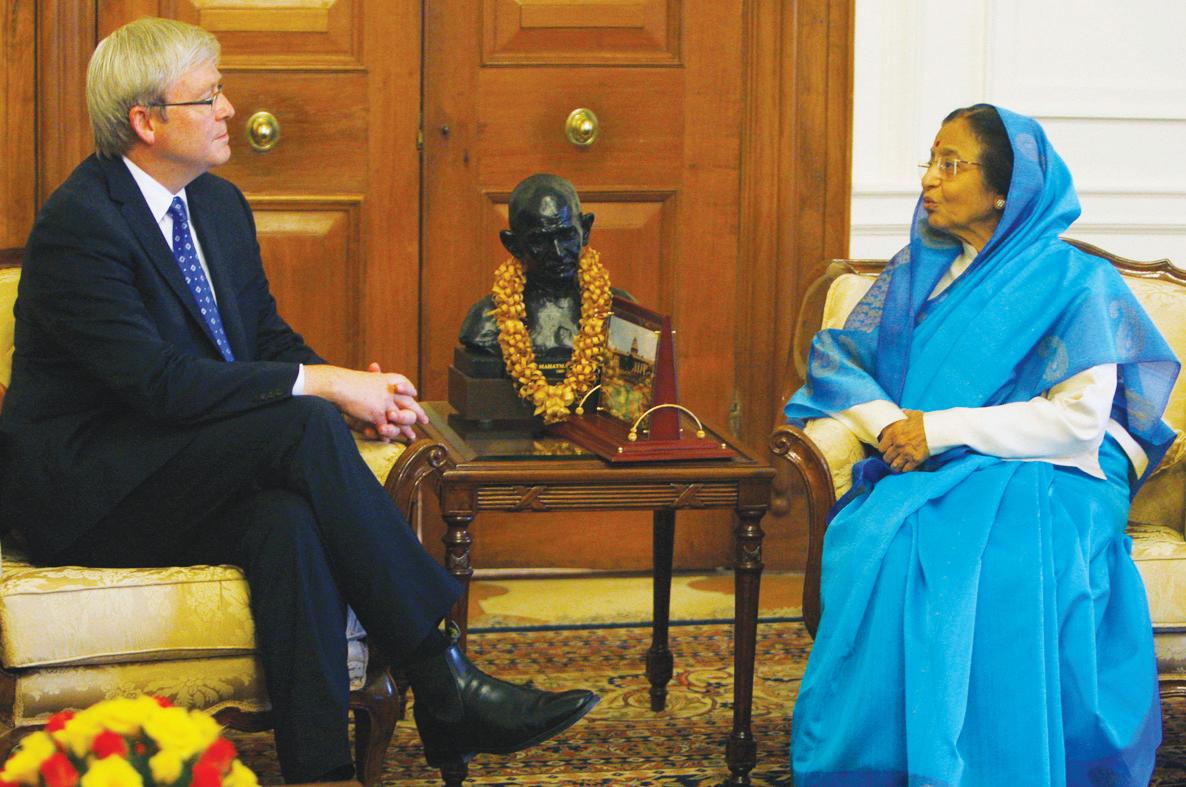
4 minute read
Kevin Rudd in India
from 2009-11 Sydney (2)
by Indian Link
Support for students, but no uranium
ON HIS VISIT to India earlier this month, Australian Prime Minister Kevin Rudd again assured India that “full force of law” would be used to protect Indian students in this country.
This, along with the other thorny issue of uranium sales to India, remained the highlight of the Australian Prime Minister’s first ever visit to India.
Indian Prime Minister Manmohan Singh said at a joint press appearance, “I have conveyed my concerns to Prime Minister Rudd over the safety, security and wellbeing of our students in Australia.”
He added that he had been assured by Rudd that it is the responsibility of Australians to ensure the security of foreign students.
In a major foreign policy speech at the Indian Council of World Affairs, Rudd aired his “disgust” at attacks on Indian students and assured that criminal attacks of this nature will not be tolerated.
“As Prime Minister of Australia, I am deeply disturbed and disgusted by attacks of violence against any foreign students studying in our country as our guests,” Rudd said.
“There have been criminal attacks targeting Indian students for the little money they earn to support their studies. These attacks will not be tolerated,” he stressed. “They will be dealt with by the full force of the Australian law enforcement and criminal justice systems. The Australian government is committed to doing its utmost to guarantee that the sons and daughters Indian parents entrust to the care of the Australian community, remain safe and come home with a valuable education and wonderful memories,” he said.
India recently overtook China to become the largest source of overseas students in Australia. Around 100,000 Indian students study in Australia.
No such reassurances were forthcoming on the uranium issue, however.
Underlining that its position of not selling uranium to countries which have not signed the Nuclear NonProliferation Treaty (NPT) is not directed against India, Kevin Rudd however, kept the door open by lauding India’s non-proliferation record.
“This policy applies globally and it has since 1978, under different Australian governments,” Rudd said. “The government understands that India looks to the day when its ambitious civil nuclear energy program can include Australian uranium,” he said.
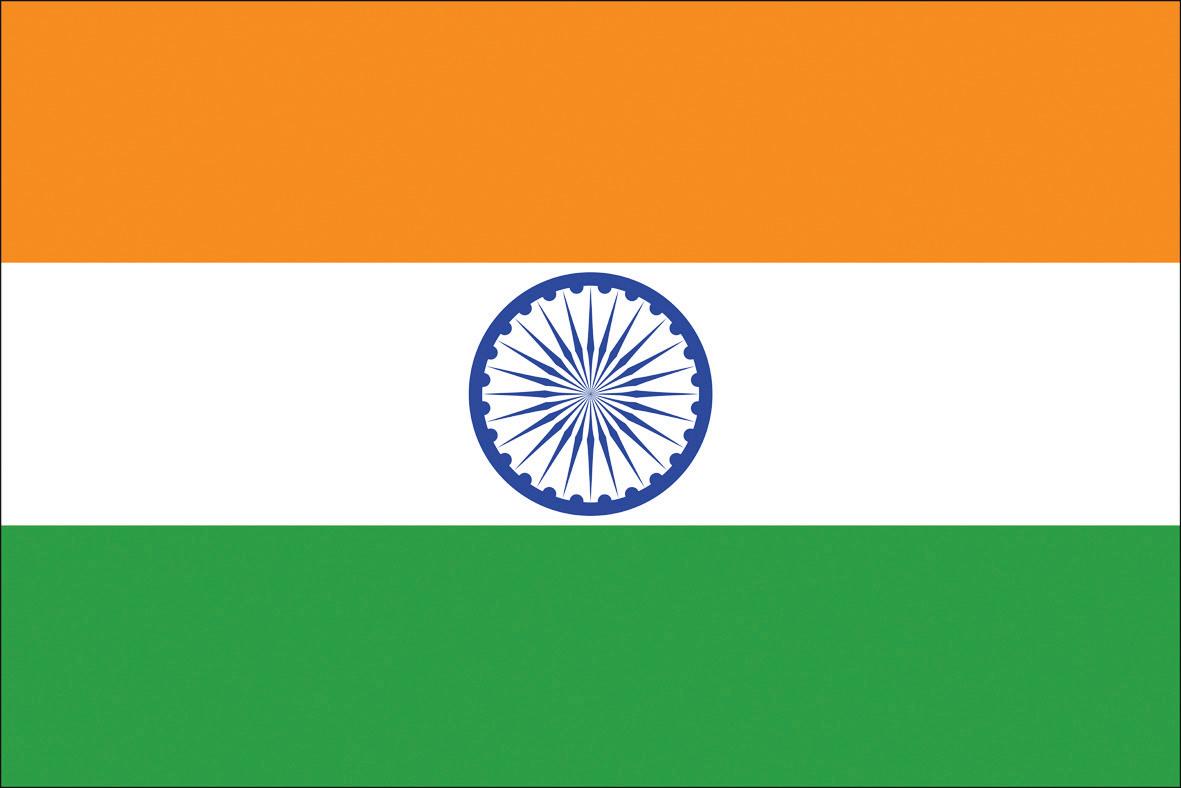
He underlined that Australia, which has nearly 40 per cent of the world’s uranium reserves, was an active supporter in the Nuclear Suppliers Group of lifting the nuclear moratorium against India following the USIndia nuclear deal.
Yet Kevin Rudd sought to move ties beyond the students’ controversy and uranium sale to a wideranging strategic and economic partnership.
Using a cricket analogy, he said that India and Australia should go in for a long solid innings rather than a 20-20 match marked by short bursts of enthusiasm and “a waxing and waning interest between our two countries”.
The two countries decided to upgrade their ties to the level of strategic partnership and agreed on a joint declaration of security cooperation to combat terrorism and piracy.
Understanding India’s emergence as a significant global player, Rudd backed New Delhi’s push to become a member of the AsiaPacific Economic Co-operation forum and pointed to a genuine strategic partnership that will include closer political, economic, defence and energy ties.
The two prime ministers also discussed the creation of a free trade area and agreed to push a joint feasibility study for the purpose.
They also decided to set up a CEOs forum to boost economic ties.
A range of other bilateral and global issues, including the global financial crisis, terrorism, energy, climate change and the reform of international bodies, were also discussed.
Meanwhile there is a growing understanding within Australia that the relationship between the two countries needs to be improved. Calls have been made by newspaper columnists suggesting that the Howard government’s more positive stance on the uranium issue be revisited. ***
Australia pledges $70 mn for research projects in India
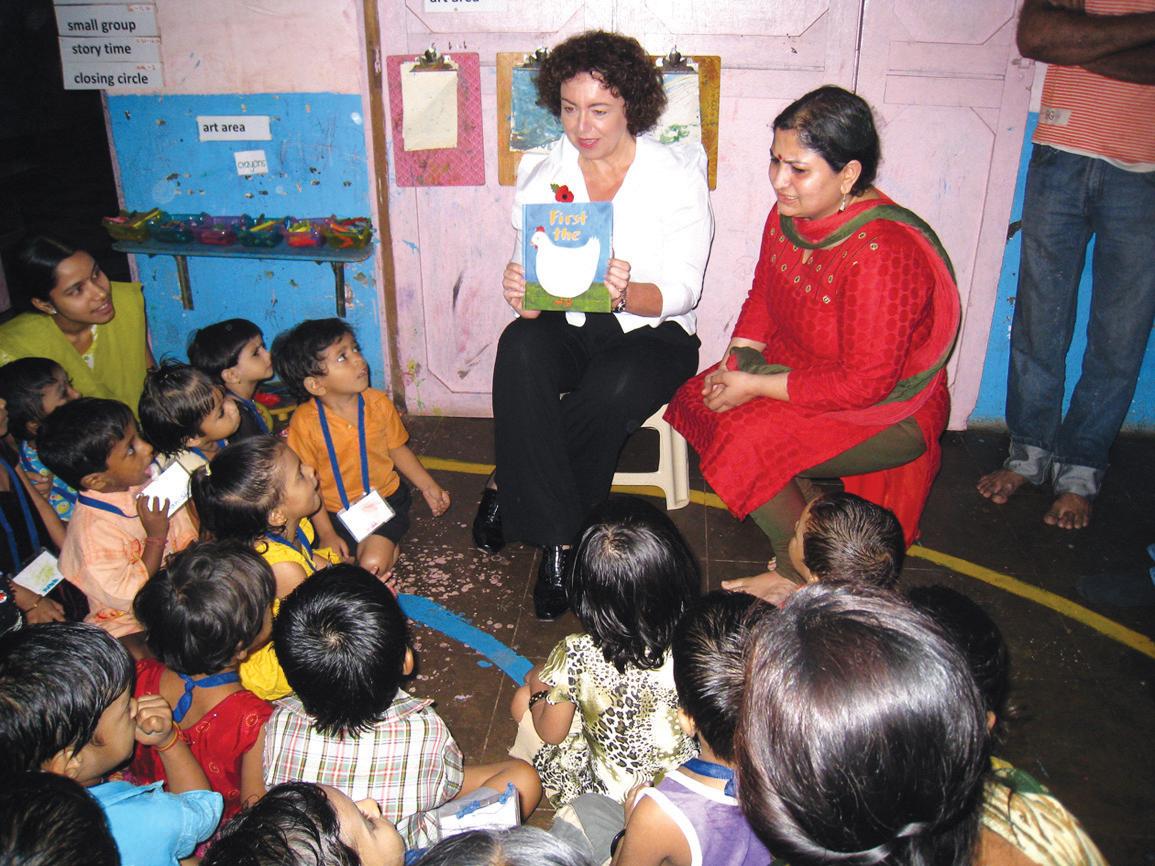
AUSTRALIA HAS DECIDED to scale up its collaboration with India in science and research by pledging over $70 million in areas straddling energy, agriculture and environment.
Australian Prime Minister Kevin Rudd announced in India that his government would invest $50 million for the Australia-India Strategic Research Fund; $1 million for an innovative joint solar cooling research project; and $20 million for research into dryland farming in India.
He announced more funds for joint research projects, a crucial element of the bilateral relationship, after talks with R.K. Pachauri, director general of The Energy and Resources Institute (TERI), a premier research body in India.
The additional $50 million for the research fund will begin from the financial year 2009-10 and be over the five years. It will complement $20 million that the Australian government has invested since 2006 to enable Australian scientists to engage in cutting-edge collaborative research with Indian scientists.
The Indian government reciprocated by agreeing to match Australia’s increased investment in bilateral research projects.
The fund is already supporting 50 projects cutting across scientific disciplines, including astronomy, climate change and evolution, malaria vaccines, the impact of global warming on agriculture, water management, computing and biotechnology.
Energy cooperation has become an important area of cooperation between the two countries. The solar cooling research project, a joint project between Australian agency Commonwealth Scientific and Industrial Research Organisation (CSIRO) and TERI, aims to develop a zero emission solar cooling system for use in remote rural communities in un-electrified areas. The Australian Centre for International Agricultural Research will be supporting research into dryland farming in India with $20 million over five years.
1. Therese Rein (top left), wife of Australian Prime Minister Kevin Rudd, visits children a kindergarten in the Mumbai slum of Dharavi. Ms Rein read to the children and sang songs

2. Kevin Rudd and Therese Rein pay homage at the Amar Jawan Jyoti memorial in New Delhi, dedicated to India’s fallen soldiers With Indian President Pratibha Patil and Prime Minister Manmohan Singh
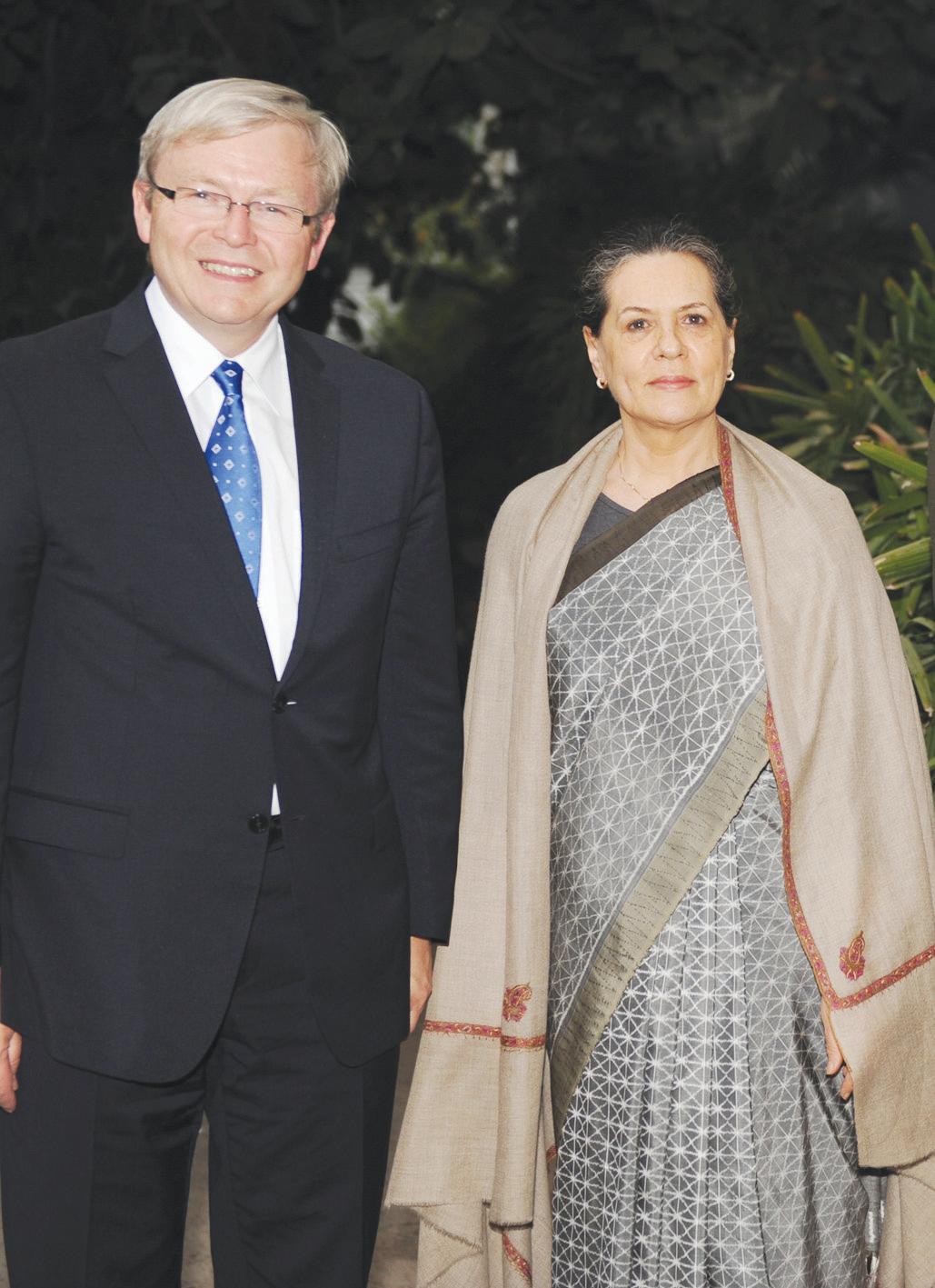
4. Prime Minister Kevin Rudd delivers a speech at The Energy and Resources Institute (TERI) in New Delhi as TERI Director-General and Nobel Prize winner R.K.Pachauri looks on
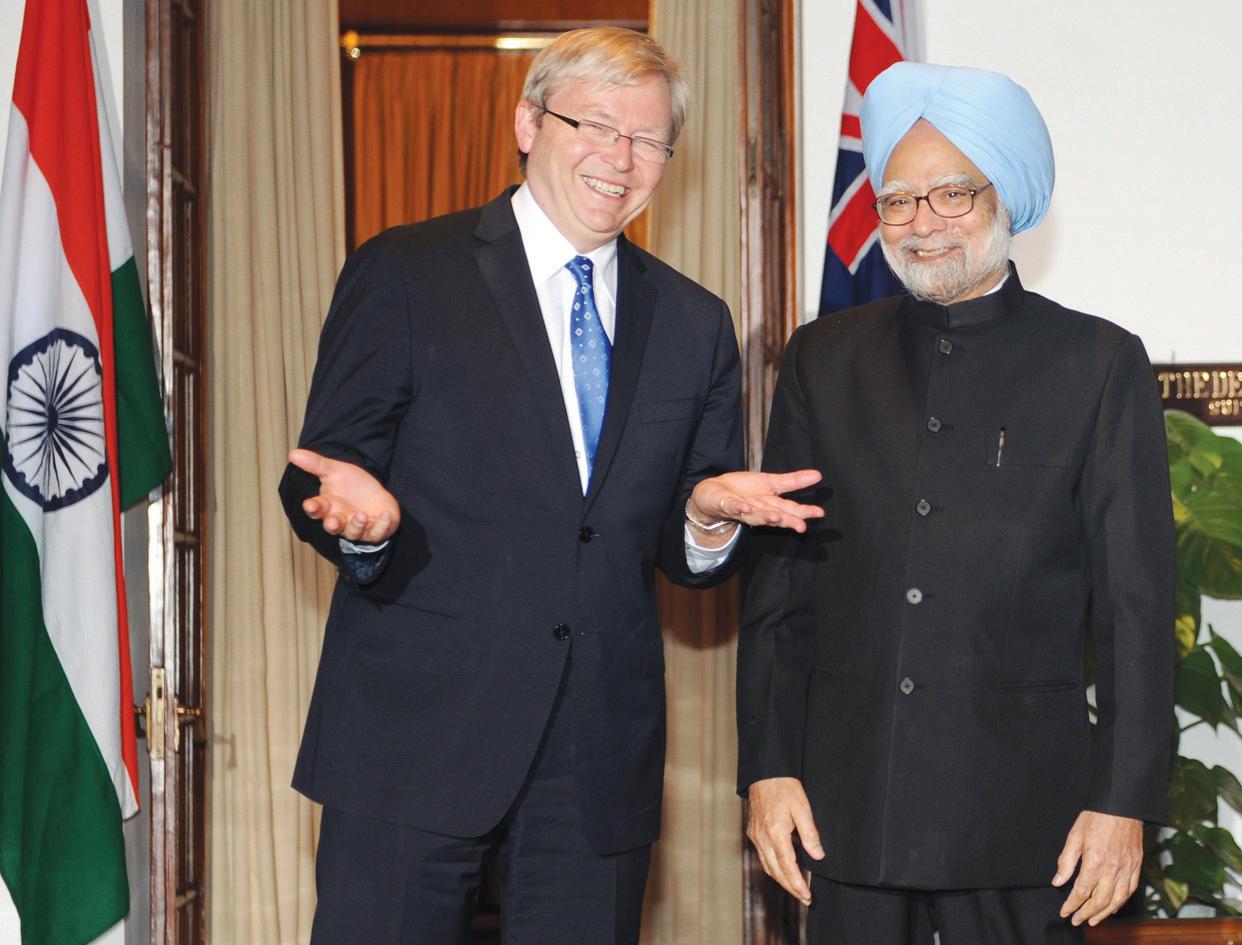
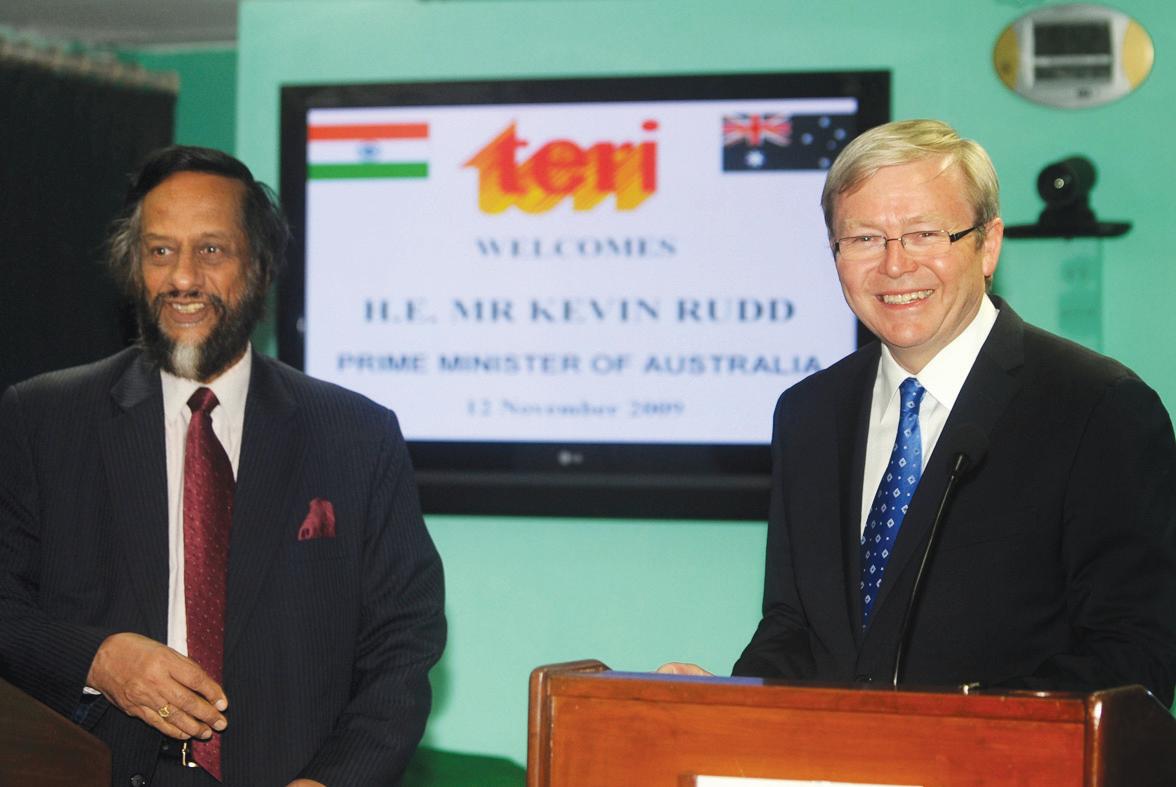
Lowest Fee Guaranteed
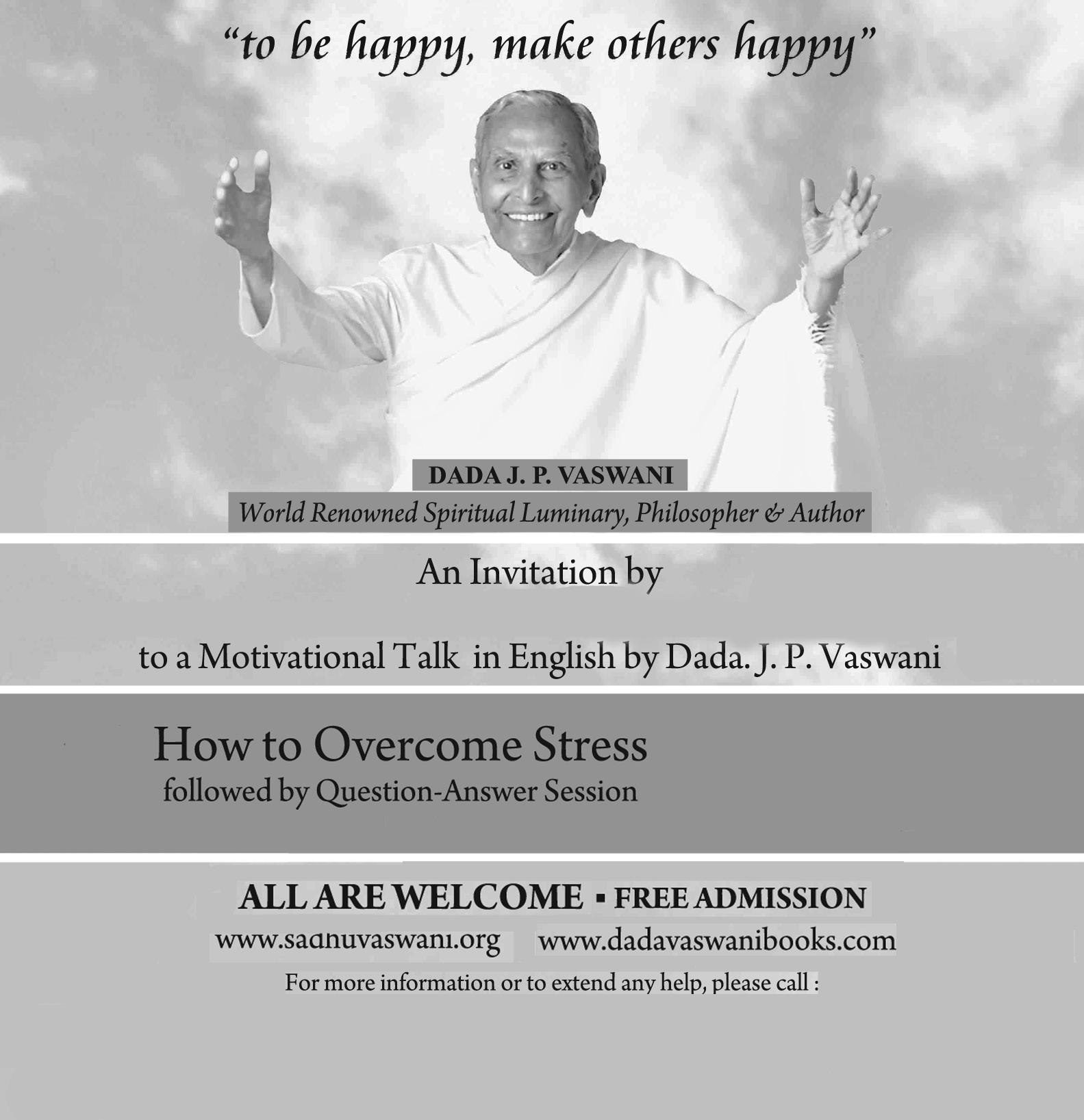
Ielts Guru









